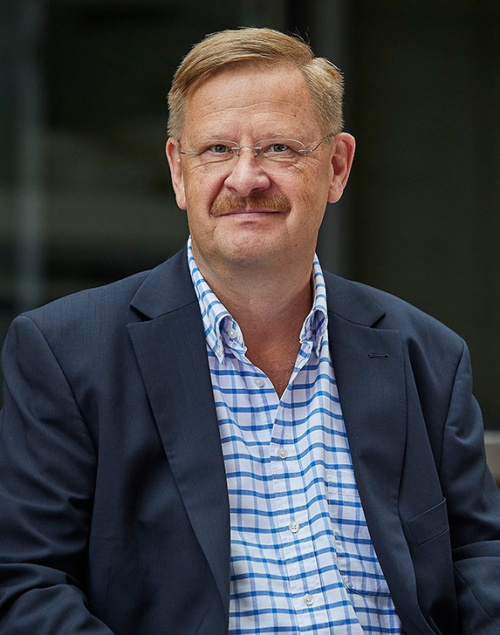
Stephan Feller studied biology in Kaiserslautern and Heidelberg from 1981 to 1989. In 1990, he moved to the USA, first as a visiting scientist at Rutgers University (UMDNJ) and then as a doctoral student at the renowned Rockefeller University in New York City, where he received his PhD in biochemistry and cell biology in 1994. The subject of his doctoral thesis was a cellular protein consisting exclusively of binding domains for other signal transduction proteins, but which, when taken up by tumor viruses, is nevertheless capable of causing tumors.
In 1995, he returned to Germany and established an independent junior research group at the University of Würzburg, where he continued the research he had begun in New York.
In 2001, he moved to Oxford (UK) and worked for the prestigious Imperial Cancer Research Fund (ICRF) at the Sir David Weatherall Institute of Molecular Medicine and subsequently at the same institute for the University of Oxford, both as Lecturer and independent group leader in the field of oncogenic signal transduction.
From 2008 to 2017, he established the open access journal Cell Communication and Signaling as Editor-in-Chief, for which he received the Editor-of-the-year Award from BioMed Central (Springer Nature, London) in 2014.
In 2013, he accepted a position at Martin Luther University in Halle (Saale). There he is still active in the field of tumor research, both in basic research (signal transduction) and in translational research in so-called 'drug repurposing', i.e. testing established drugs in new combination therapies against selected tumor cell types in the preclinical field.
As a tumor researcher, disease prevention is of particular concern to him. Many tumors that are currently incurable can be prevented or at least greatly delayed.
In 2019, Stephan Feller became a member of Scientists 4 Future, the Regional Group Halle, to actively help fighting the climate crisis. The global climate crisis is not entirely dissimilar to a life-threatening tumor: at first it goes almost unnoticed for a long time but then wreaks havoc in many places. The acute climate crisis could also be significantly mitigated by rapid and effective preventive measures, and here, too, many people are apparently only really becoming aware of the problem when it is already very late and the consequences are in part irreversible.
That is why Stephan Feller supports Fridays for Future etc., e.g. with demo contributions. He also gives lectures on the health consequences of the climate crisis in schools and at various other events.